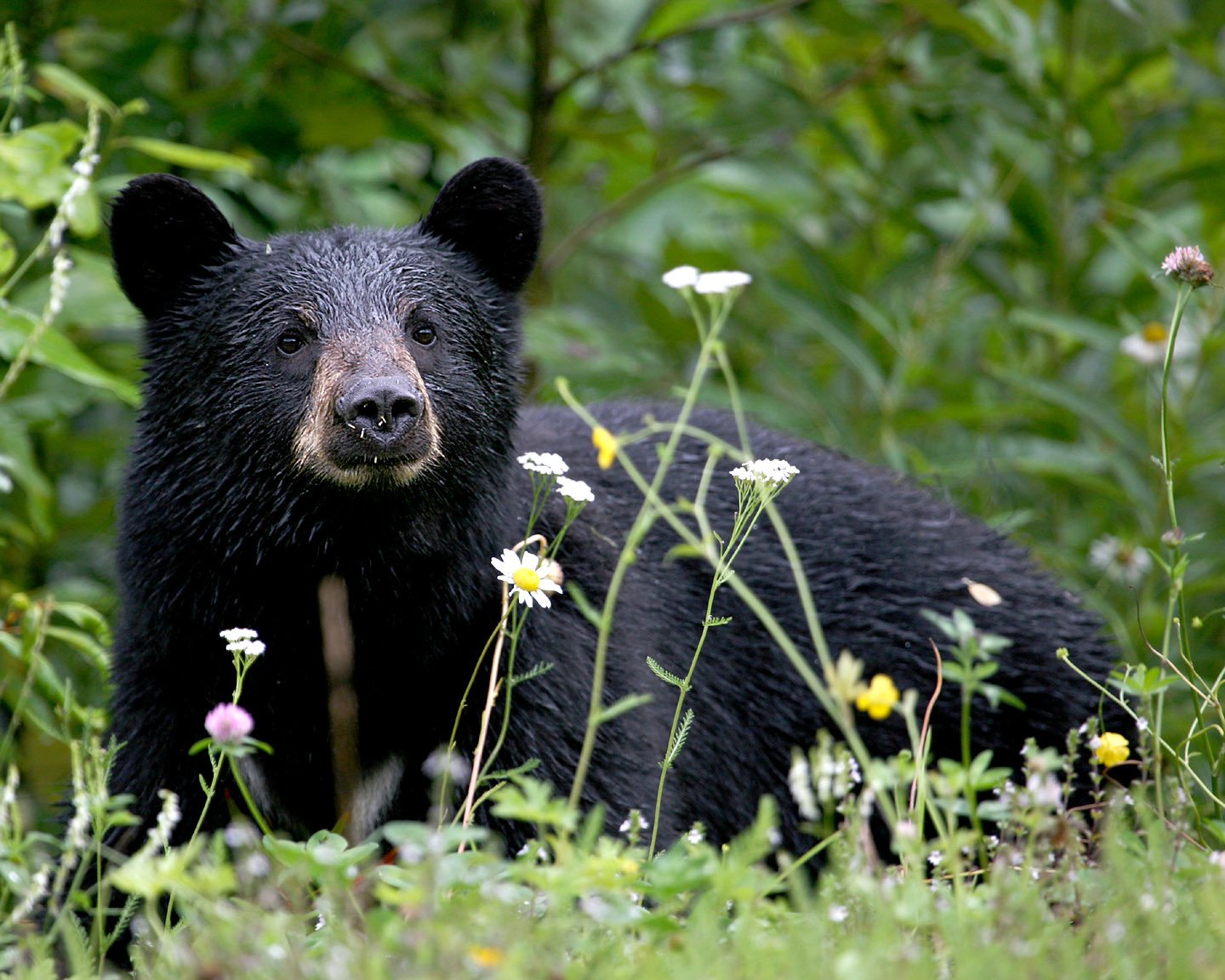The bears, it seems, are back. After our furry, sometimes-terrifying friends were spotted wandering around a Beltsville shopping center, Theodore Roosevelt Island, and Brookland last June, they seem to have returned: this week, bears were seen in Silver Spring and once again, Brookland.
Perhaps you’re wondering: are the bears winning? Are we, as a species, just a few dumb decisions or bad breaks—nuclear war, global super virus pandemic, yet another cortex-shrinking season of Vanderpump Rules—away from The Dawn of the Rise of the War for the Kingdom of the Planet of the Bears? (No, and hopefully not, though let’s not get overconfident about No. 2 given current events). Or maybe you just want to know: What’s up with these city bears, and what should I do if I see one?
Not to worry—thanks to our previous and extensive urban bear coverage, we have you covered:
Why am I seeing bears here, and not, like, in the woods?
When the weather gets warmer, says Jonathan Trudeau, the Black Bear & Co-Deer Project Leader for the Wildlife & Heritage Service of the Maryland Department of Natural Resources, young bears go out into the world to find homes of their own—a phenomenon known as “dispersing,” which coincides with mating season.
“Young males are the ones you typically find wandering into urban areas because, during the breeding season, they want to avoid large boars—which are male bears—that could end up killing them,” says Rich Goszka, a retired Virginia game warden who used to work with urban bears in New Jersey. “So they disperse and try to find their own territory. Sometimes they follow the rivers, which are all typically wooded, and then they pop out. When they get in trouble, they tree themselves, then a crowd gathers.”
So the bear that I’m scared of … is probably also scared of bears?
There’s always a bigger fish!
Why else do bears come to the city?
Same reason many of us do—to find something tasty to eat. (Dear Bears: check out our restaurant hot list! You’re welcome). “They want to feed heavily because they’ve come out of hibernation and they’re looking to put on weight through the summer,” Goska says. “The smell of human development entices a lot of bears.”
Goska once had to deal with a female bear with two cubs that was breaking into cars on the Appalachian Trail in New Jersey in order to get food from people’s coolers. Mama bear also “bluff charged” a group of Boy Scouts—that is, popping her jaws and stomping her feet—in order the scare the scouts into dropping their hot dogs, which her cubs would then eat.
According to Goska, some bears become habituated to human food because people—very stupid people who clearly want the bears to rule, if you ask us—feed them. “Bears would come into neighborhoods and people would be out there with donuts, bread, all kinds of things,” he says.
So if I don’t want to attract bears, don’t give them Krispy Kremes?
Yep. Bears also love birdseed, gas grill grease, and garbage. So keep a tight lid on your rubbish, just like you would to discourage rats. “We see trash as a byproduct, and bears see trash as a buffet,” Trudeau says.
What if I’m confronted by a bear, anyway?
Don’t approach the bear. Louder, again, for the readers in the back: DON’T APPROACH THE BEAR, EVEN IF YOU REALLY WANT TO CREATE AN EPIC POST. If you find yourself too close for comfort regardless, try to look more imposing. Make some loud noise. And please, call wildlife control—they can tranquilize the bear and move it to a safer location.


















